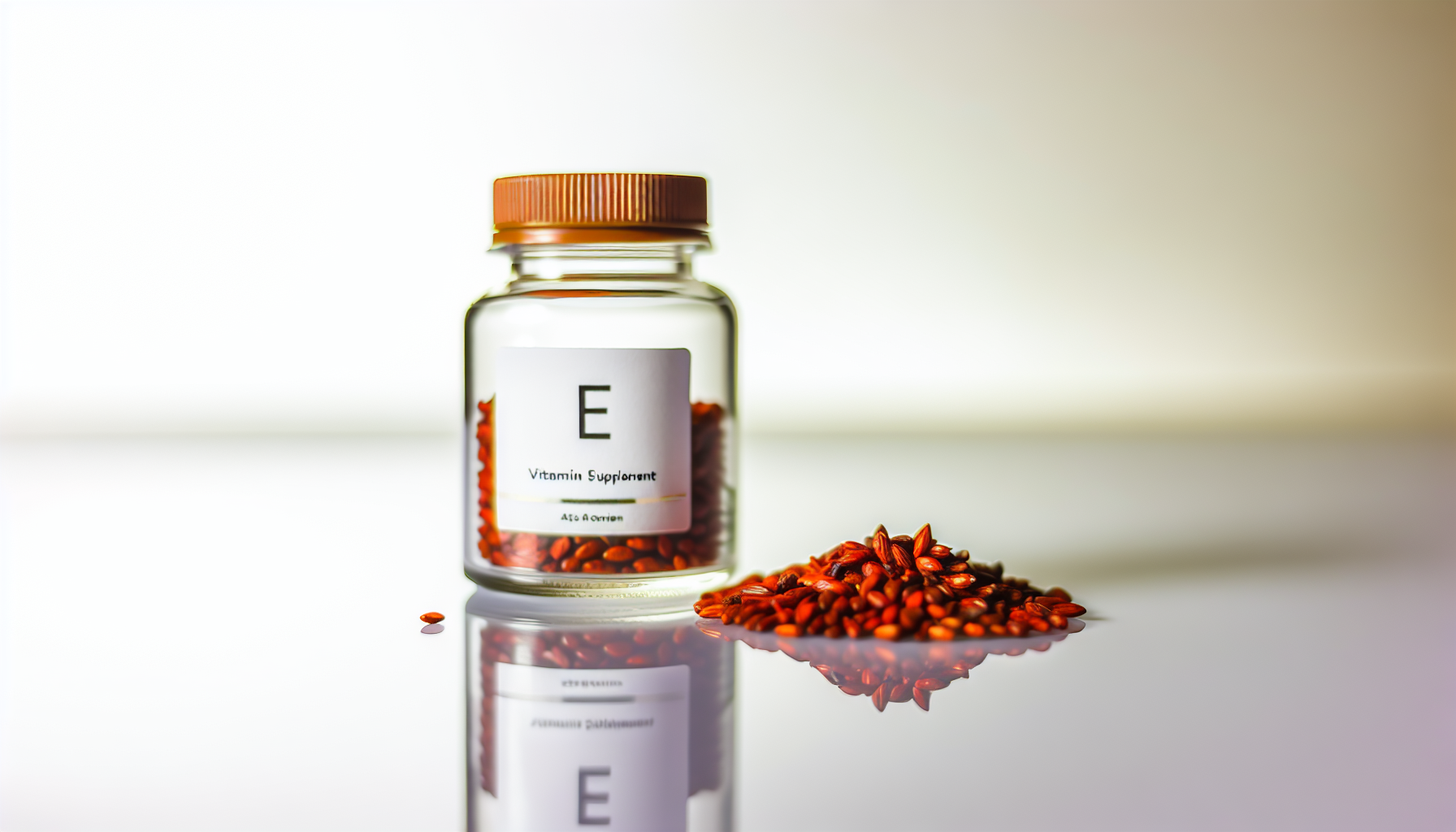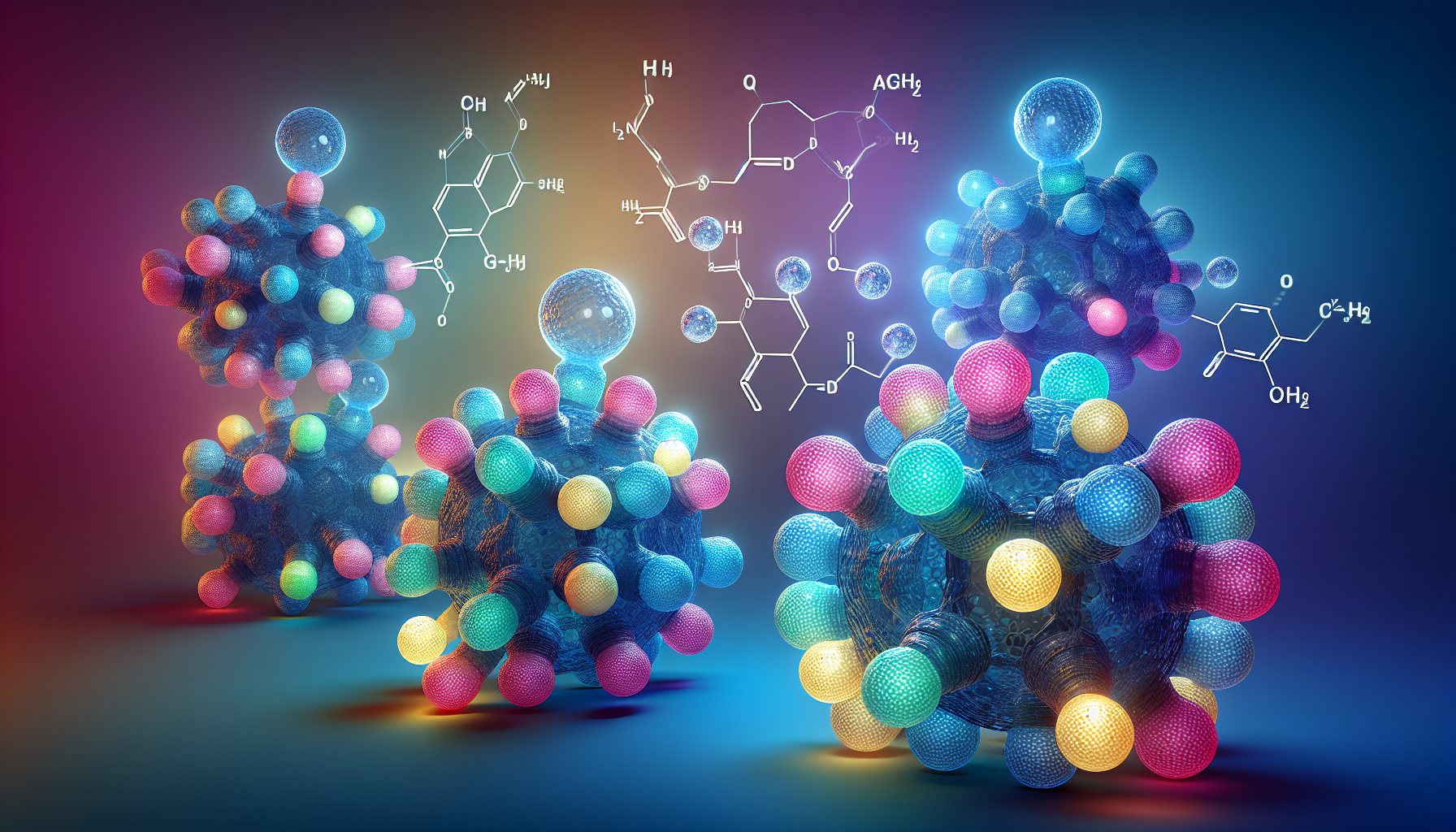Are you embarking on a journey to enhance your health with natural supplements? You might have pondered, “Can you take tocotrienols every day?” Discover the transformative power of tocotrienols, a lesser-known yet potent member of the vitamin E family. Renowned for their robust antioxidant capabilities, tocotrienols are not just another supplement but a beacon of hope for bolstering heart, brain, and bone health. We want this guide to be enlightening and not only answer your daily dosage questions but also unveil the remarkable benefits and necessary precautions of integrating tocotrienols into your daily wellness ritual. Delve into the world of tocotrienols with us and uncover how this extraordinary nutrient can be a game-changer in your pursuit of optimal health.
Key Takeaways
- Tocotrienols are a form of Vitamin E with potent antioxidant properties and provide health benefits, including cardiovascular, brain, and bone health; however, they are not common in the Western diet, necessitating supplementation for those seeking their benefits.
- While daily tocotrienol intake is generally safe when adhering to recommended dosages, overconsumption can lead to serious side effects such as internal bleeding, and high doses may interact with certain medications like blood thinners.
- The recommended daily dose of tocotrienol for adults is 200 mg, but individual needs may vary; quality supplementation should be sourced, ideally from Annatto, and one should consult with a healthcare provider to avoid excessive intake or drug interactions.
Understanding Tocotrienols: The Overlooked Vitamin E

Tocotrienols are a variant of the vitamin E family that provides distinctive health advantages. Their antioxidant properties, which play a vital role in human health, are the primary benefit of tocotrienols. These potent antioxidants act as a shield, protecting our cells from damage caused by free radicals, which are unstable molecules that can cause oxidative stress, leading to chronic diseases.
Though less prominent than its alpha tocopherol counterparts, recent years have seen a surge in interest in tocotrienols. The health benefits associated with tocotrienol supplementation extend beyond their antioxidant properties, making them a valuable addition to most vitamin E supplements.
Tocotrienol Sources
The primary sources of tocotrienols, particularly in the tocotrienol-rich fraction, are:
- Palm oil, which contains approximately 940 mg/kg of tocotrienols
- Rice bran oil, which has about 465 mg/kg of tocotrienols
- Annatto seeds, which are considered a valuable source of this powerful antioxidant
Even though these vegetable oils contain tocotrienols, they are not abundant in the typical Western diet. This scarcity in our daily food intake makes tocotrienol supplementation a practical choice for those aiming to reap the health benefits of this overlooked form of vitamin E.
Forms of Tocotrienols

Tocotrienols exist in four forms:
- Alpha
- Beta
- Gamma
- Delta
Each form has unique properties. The gamma and delta forms are considered the most potent because their smaller molecular structures facilitate easier access to the cell membrane, resulting in stronger antioxidant properties.
The various forms of tocotrienols offer diverse health benefits, including:
- Enhancing heart health
- Preventing osteoporosis
- Reducing cholesterol levels
- Exhibiting anti-cancer properties
This variety of benefits highlights the importance of ensuring enough vitamin E intake through a balanced diet or a vitamin E supplement.
Daily Tocotrienol Intake: Is It Safe?
The health benefits of tocotrienols may encourage you to intake these powerful antioxidants daily, yet it’s significant to consider safety aspects. Generally, consuming tocotrienols daily is considered safe, provided the recommended dosages are followed. However, like with any supplement, it’s crucial to be aware of potential side effects and drug interactions.
Tocotrienols are associated with minimal side effects, but overconsumption can lead to adverse effects like internal bleeding. It’s also worth noting that certain medications may interact adversely with high doses of tocotrienols.
Side Effects
Although tocotrienols are generally well-tolerated, overconsumption may lead to potential adverse effects. The best way to avoid these effects is to consult first with a healthcare professional. This is essential because one of the most serious side effects associated with high doses of tocotrienols is internal bleeding. Other possible side effects include:
- diarrhea
- nausea
- stomach cramps
- headache
- dizziness
You must contact your healthcare professional if you experience any of these side effects.
Internal bleeding due to excessive intake of tocotrienols may be manifested through various symptoms, including gastrointestinal issues, weakness, fatigue, emotional lability, blood thinning, and potentially fatal bleeding. In severe instances, sudden weakness, severe headache, speech or vision problems, and bleeding in the brain may occur.
Drug Interactions
When consumed at typical doses, tocotrienols pose no known risks in terms of drug interactions. However, caution must be exercised when taking high doses of tocotrienols alongside certain medications.
Specifically, tocotrienols may have adverse interactions with the following medications when taken at high doses:
- Aspirin
- Warfarin
- Tamoxifen
- Cyclosporine A
- Anticoagulant/antiplatelet drugs
For instance, tocotrienols have the potential to interact with blood thinners such as warfarin, which may affect their efficacy.
Health Benefits of Daily Tocotrienol Consumption
Regular intake of tocotrienols can contribute to many health benefits, including improved cardiovascular, brain, and bone health. These benefits are derived from the potent antioxidant properties of tocotrienols, which combat oxidative stress and inflammation – two key contributors to chronic diseases.
Beyond their antioxidant properties, tocotrienols also provide additional benefits like lowering cholesterol levels, promoting bone health, and boosting cognitive performance. This multi-pronged action makes tocotrienols a powerful ally in maintaining overall health.
Cardiovascular Benefits

Tocotrienols offer significant cardiovascular benefits, including:
- Helping to maintain healthy cholesterol levels
- Supporting overall heart health
- Reducing inflammatory mediators
- Suppressing the expression of matrix metalloproteinases
The many health benefits of this natural remedy can alleviate conditions like hyperlipidemia and hypercholesterolemia that pose significant risks to cardiovascular health.
In addition to reducing inflammation, tocotrienols, particularly α-tocotrienol, have the potential to notably reduce total cholesterol and LDL cholesterol as well as triglyceride levels, all of which are advantageous in mitigating the risk of heart disease. Their ability to function as antioxidants by scavenging lipid peroxyl radicals also contributes to the protection of the cardiovascular system by effectively reducing lipid oxidation.
Brain Health

In the context of brain health, tocotrienols manifest neuroprotective effects via both antioxidant-independent and antioxidant-dependent pathways. These effects, combined with their inhibitory effects on microglia, anti-inflammatory actions, and protection against glutamate- and stroke-induced neurodegeneration, make tocotrienols a promising tool in the fight against neurodegenerative diseases.
Importantly, tocotrienols can potentially function as a nootropic, thereby improving cognitive performance. Supplementation of palm tocotrienols, for instance, has been linked to improvement in cognitive function. Additionally, tocotrienols decrease the population of two proteins that facilitate the progression of Alzheimer’s disease, offering a promising avenue for Alzheimer’s prevention and treatment.
Bone Health
Bone health is another area where tocotrienols play a significant role. They contribute to bone formation by:
- Enhancing the health of bones
- Decreasing bone loss
- Preventing osteoclast formation and resorption activity
- Stimulating anabolic properties that lead to heightened bone formation.
Furthermore, tocotrienols aid in reducing inflammation related to bone health by functioning as an anti-inflammatory agent. They mitigate the production of proinflammatory cytokines and exhibit antioxidative and anti-inflammatory properties, which are advantageous for preserving bone integrity and health. These benefits show the potential of tocotrienols in addressing bone loss related to postmenopausal osteoporosis, menopause, andropause, and smoking and their role in assisting in mending fractures in osteoporotic bones.
Tocotrienols and Chronic Diseases
Besides their general health benefits, tocotrienols have demonstrated potential in managing chronic diseases, including diabetes, cancer, and liver disease. By enhancing glucose homeostasis, improving glycemic control, increasing insulin sensitivity, and reducing HbA1c levels, a diabetes indicator, making tocotrienols particularly beneficial for individuals with diabetes.
Moreover, tocotrienols exhibit potential anticancer properties by inhibiting angiogenesis and vascular endothelial growth factor (VEGF) and inducing apoptosis (programmed cellular death) through the caspase-3 pathways. They also demonstrate a significant role in liver health by improving liver tissue normalization and delaying liver disease progression.
Diabetes Management
Tocotrienols have demonstrated the ability to:
- Enhance glucose homeostasis
- Improve glycemic control
- Increase insulin sensitivity
- Reduce HbA1c levels in individuals with diabetes
A meta-analysis revealed that the supplementation of high-dose tocotrienol notably reduced HbA1c levels in patients with type 2 diabetes, providing solid evidence for the role of tocotrienols in diabetes management.
Furthermore, tocotrienols have shown the potential to enhance renal function in individuals with diabetes by reducing inflammation and improving kidney function parameters. This highlights the multifaceted benefits of tocotrienols in managing diabetes and its associated complications.
Cancer Prevention

Tocotrienols have demonstrated potential in combating various types of cancer, such as breast, ovarian, prostate, colon, and skin cancers. This is achieved as tocotrienols inhibit angiogenesis and vascular endothelial growth factor (VEGF) while also inducing apoptosis through the caspase-3 pathways. These mechanisms contribute to the anticancer effects of the treatment. Additionally, they are known to decrease cancer cell proliferation and promote cancer cell death.
In the context of ovarian cancer, tocotrienols have demonstrated the following benefits:
- Anti-neoplastic activity
- Hindering pathways involved in the cancer’s development and progression
- Increased survival rates among advanced-stage patients when administered
These findings indicate the potential of tocotrienols as a natural adjunct to conventional cancer treatments.
Liver Health
Tocotrienols may aid in treating liver cancer and nonalcoholic fatty liver by:
- Improving liver tissue normalization
- Delaying the progression of liver disease
- Achieving preferential distribution to the liver
- Protecting against liver damage
- Inhibiting TLR activation
- Increasing interleukin-10
- Reducing lipid peroxidation
- Elevating antioxidant activities in the liver
These actions provide a comprehensive approach to liver health, addressing the prevention and treatment of liver diseases. Therefore, tocotrienols can be considered a promising supplement for individuals with liver conditions or those at risk.
Recommended Dosage and Tips for Tocotrienol Supplementation
Adherence to recommended dosage guidelines and selection of high-quality supplements is important for optimal benefits from tocotrienol supplementation. The suggested daily dosage of tocotrienols for adults is 200 mg. However, if an individual is consuming a tocotrienol supplement and receiving ample vitamin E from their diet, it would be prudent for them to contemplate reducing their supplement intake to prevent excessive consumption.
Choosing a high-quality tocotrienol supplement is essential for ensuring the best results. To assist our readers in this selection, we have thoroughly reviewed the top tocotrienol supplements in our detailed article titled “Shattering the Vitamin E Stereotype: A Journey into the World of the Best Tocotrienol Supplements.” This comprehensive review highlights five exceptional products, including the Wellness Extract - E Annatto Tocotrienols, known for their potent formulation and enhanced absorption capabilities. We invite our readers to explore the full review here for a deeper insight into these top-tier supplements and to make an informed choice.👇
Daily Dosage
The recommended daily dosage of vitamin E, including tocotrienols, for adults and teenagers is 15mg daily. The recommended daily dosage is slightly higher for pregnant and breastfeeding women, at 15 mg and 19 mg, respectively. Adhering to these dosage guidelines can help ensure safe and effective tocotrienol supplementation.
Individual needs vary, so it’s always wise to consult a healthcare provider before initiating any new supplement regimen. This is particularly crucial for individuals with pre-existing health conditions or those taking other medications to avoid potential drug interactions.
Choosing a Supplement
As mentioned above, quality is crucial when selecting a tocotrienol supplement. It’s advisable to prioritize tocotrienol supplements with premium ingredients, ideally derived from annatto, and verify certifications like Good Manufacturing Practices (GMP), which can guarantee the quality and safety of the supplement. Remember, seeking guidance from a healthcare professional before usage is always advisable.
While annatto-sourced tocotrienols are distinguished for their high vitamin E concentration, remarkable antioxidant qualities, and absence of alpha-tocopherols, which can impede their effectiveness, understanding the best sources of tocotrienols is equally important. Recognizing the scarcity of high tocotrienol levels in typical Western diets, our article “The Best Sources of Tocotrienols for Optimal Health - Unveiled” provides invaluable insights. This comprehensive guide explores various natural sources and discusses their unique benefits. We delve into how these sources can complement your dietary needs and enhance overall health. We encourage our readers to refer to this enlightening article for an in-depth understanding of the most effective tocotrienol sources. 👇
Wrapping Up Our Journey Into Tocotrienol Protocols
Tocotrienols, a potent and often underappreciated member of the vitamin E family, are gaining recognition for their remarkable health benefits. These compounds, found in sources like palm oil, rice bran oil, and green leafy vegetables, are more than just a variant of vitamin E; they represent a breakthrough in nutritional science with their potent antioxidant properties. Tocotrienol supplementation has shown promising results in clinical trials, offering benefits for cardiovascular health, brain function, and bone health, particularly in postmenopausal osteoporosis. The ability of tocotrienols to manage chronic diseases like diabetes, nonalcoholic fatty liver, and various forms of cancer, such as their inhibitory effect on human breast cancer cells, underscores their significance. Importantly, while tocotrienols can be taken daily as part of a supplement regimen, it's crucial to ensure adequate dosage and select high-quality supplements for maximum efficacy and safety.
The ongoing research into tocotrienols reveals their multifaceted role in human health, distinguishing them from the more commonly known alpha-tocopherol form of vitamin E. These natural vitamin compounds, particularly the delta and gamma-tocotrienol forms, have demonstrated their ability to lower LDL cholesterol levels, improve insulin sensitivity, and reduce oxidative damage in brain cells, suggesting a potential role in managing neurodegenerative diseases. Their unique benefits extend beyond traditional vitamin E supplements, as they contribute to maintaining blood pressure, improving blood chemistry, and even aiding in fighting cancer through mechanisms like gene expression modulation. As we continue to uncover the diverse benefits of tocotrienols, they emerge as potent antioxidants and key players in promoting heart health, mental health, and overall well-being. The journey into the world of tocotrienols is just beginning, and the insights gained hold promising implications for enhancing life quality and disease prevention.
Check Out Our FAQs Too!
Is it safe to take tocotrienols?
Tocotrienols are generally safe for healthy individuals, but those with certain blood disorders should avoid them due to their anticoagulant properties. The recommended safe dose for human consumption is 200-1000 mg/day.
Are tocotrienols good for kidneys?
Yes, tocotrienols have been found to improve renal function and reduce kidney inflammation, as shown by various studies. These effects include reduced serum creatinine, improved eGFR, and decreased adhesion molecules linked to kidney inflammation.
Is tocotrienol good for the liver?
Yes, tocotrienols have potent anti-inflammatory and antioxidant properties and may reduce liver injury in non-alcoholic fatty liver disease (NAFLD). This means they can be beneficial for liver health.
What are tocotrienols?
Tocotrienols are a variant of the vitamin E family that offers unique health benefits, primarily due to their antioxidant properties.
What are the main sources of tocotrienols?
The main sources of tocotrienols are palm oil, rice bran oil, and annatto seeds, which are rich sources of this nutrient.
Thanks for taking this journey to explore Tocotrienols and their ideal dosage and consumption criteria. And, if you want to add to your library of knowledge, you should check out the other articles mentioned and linked above. It never hurts to add to your knowledge arsenal!
Also, please return soon to check out our next review of another incredible supplement – we’re always looking out for YOU!
*We are not qualified medical advisors. The content here is only based on our research and opinions and should NOT be used as a substitute for a healthcare professional's advice!











Member discussion